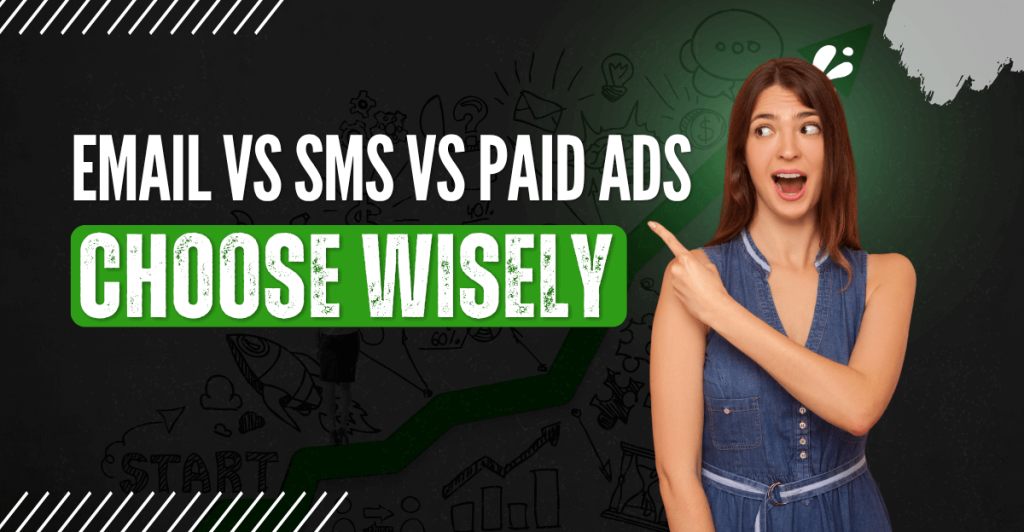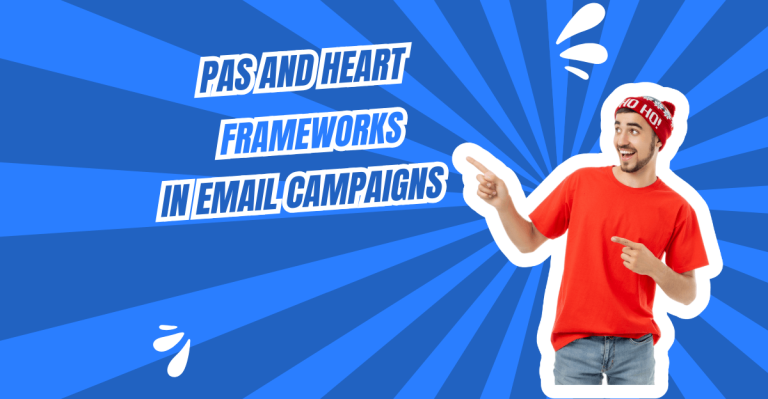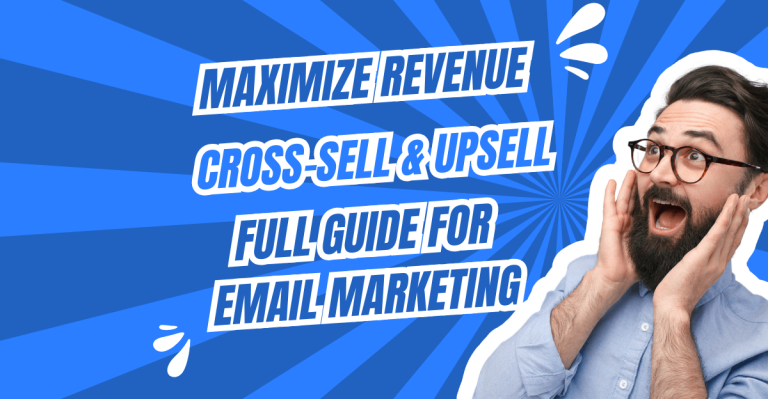Why Ecommerce Brands Must Choose Their Channels Wisely
In 2025, soaring customer acquisition costs and shrinking attention spans mean that choosing the right marketing mix can make or break your ecommerce success. While paid ads, social, and SMS all play roles, email marketing consistently delivers the highest ROI and lowest risk. Especially when used strategically.
Let’s dive into how email stacks up and how smart brands can apply it in real-world scenarios.
Channel Showdown: Email vs SMS vs Paid Advertising
1. Cost & ROI
| Channel | Avg. ROI | Cost to Start | Lifetime Value Impact |
|---|---|---|---|
| $42:1 | Low | High | |
| SMS | $29:1 | Medium | Medium |
| Paid Ads | $8–15:1 | High | Low–Medium |
Email wins hands-down. With minimal investment you can start sending, track results, and scale. But keep in mind that using both Email & SMS would make a killer combination.
Practical action: Start by building a simple welcome email sequence in platforms like Klaviyo. Include brand intro + first offer, then track revenue per email to validate ROI.
2. Audience Ownership
- Email & SMS = You own the list.
- Paid Ads = You rent visibility.
With privacy controls like iOS 17 updates and progressive cookie deprecation, owning your audience is more important than ever.
Apply this: Use exit-intent popups, embedded signups, and incentivized offers (e.g. “Get 10% off your first order”) to build both email and SMS lists from day one.
3. Engagement Metrics Comparison
| Metric | SMS | Paid Ads | |
|---|---|---|---|
| Open Rate | 20–30% | 90%+ | ~2–5% CTR |
| Click Rate | 2–5% | 10–15% | 0.5–2% |
| Unsubscribe Rate | Low | Moderate | N/A |
SMS opens fast, but email scales better. Use each channel’s strengths—email for messaging depth and retention, SMS for time-sensitive pushes.
Try this: For a flash sale, send an SMS reminder 1–2 hours before it ends, and follow with an email recap the next day.
4. Customer Journey Integration
- Email excels in onboarding, education, loyalty, and re-engagement.
- SMS is ideal for reminders, flash offers, or delivery updates.
- Paid Ads drive discovery and initial site traffic.
Strategy tip: Use ads to attract new visitors → capture email/SMS → onboard via email → deliver timely SMS nudges → reinforce with retargeting ads.
5. Personalization & Automation Potential
| Channel | Dynamic Content | Behavioral Targeting | Predictive AI |
|---|---|---|---|
| ✅ | ✅ | ✅ | |
| SMS | ✅ | ✅ | ⚠️ Limited |
| Ads | ✅ (depends on platform) | ✅ | ⚠️ Platform-limited |
Modern email tools support personalization by purchase behavior or predicted churn—SMS and ads lack this flexibility at scale.
Action step: Segment subscribers into groups like “new customer,” “mid-tier spender,” or “lapsed >90 days,” then tailor flows like winback, cross-sell, or educational sequences.
Strengths & Weaknesses of Each Channel
Email Marketing
- Strengths: High ROI, scalable through automation, ideal for deep engagement, and fully trackable.
- Weaknesses: Needs consistent list growth; overuse or poor targeting can lead to subscriber fatigue.
Your Move: Use lead magnets and content-based email signups; monitor unsubscribes and engagement to avoid over-mailing.
SMS Marketing
- Strengths: Instant opens and clicks, perfect for urgent messages (e.g. flash sales or replenishment reminders).
- Weaknesses: More expensive per message, higher unsubscribe risk, and stricter compliance.
Tactical Tip: Reserve SMS for high-intent triggers—like cart abandonment reminders or limited-time offers—and always include easy opt-outs.
Paid Ads (Social & Search)
- Strengths: Excellent for reach, creative storytelling, and fast acquisition.
- Weaknesses: Rising ad costs, diminishing ROI without strong funnel follow-up, and platform dependence.
Smart Use: Use ads to drive initial traffic and collect leads, but drive conversions and retention via email/SMS follow-up flows.
When to Use Each Channel
Acquisition vs Retention
- New traffic acquisition: Paid Ads
- Lead capture: Email & SMS
- Repeat purchases: Email
Launch vs Loyalty Campaigns
- Product launches: Combine Email + Paid Ads
- VIP or big rewards: Email + SMS
- Back-in-stock alerts: SMS first, email follow-up
Example workflow:
- Facebook Ad promotes a new product.
- User lands → sees email/SMS signup popup.
- Welcome email sequence starts.
- SMS reminder drops before cart expiration.
- Email flow educates, cross-sells, and builds loyalty.
- Retarget with ads to warm leads.
Multi-Channel Strategy in Action
Example Flow:
- Ad attracts a visitor.
- Popup converts them into an email or SMS lead.
- Welcome email introduces your brand with social proof.
- SMS reminds them if they abandon cart.
- Email continues with targeted content and upsells.
- Paid ads retarget based on email clicks or site behavior.
Brands who orchestrate this ecosystem reap stronger retention, higher LTV, and smoother CAC control.
Real-Life Brand Results
- Apparel Brand: Email recovered 28% of abandoned carts vs 8% via SMS alone.
- Beauty Brand: 45% of overall revenue came from email, versus 13% from paid ads.
- Footwear Startup: Reduced CAC by 36% after shifting focus from Facebook ads to email-first acquisition.
Lesson: Email doesn’t just compete—it often wins outright by delivering consistent value over time.
FAQs: Choosing the Right Marketing Channels
Should I focus on email or SMS first?
Start with email—its high ROI and flexibility make it your foundation. Add SMS selectively for urgency triggers.
Are paid ads still worth investing in for 2025?
Yes—for top-of-funnel discovery. But maximize ROI by backing them up with email and SMS campaigns.
Which channel drives the best retention?
Email. Flows, messaging cadence, and personalization all support long-term customer journeys.
How should I capture both email and SMS contacts?
Use popups, quizzes, social proof widgets, and gated content. Offer real value—discounts, guides, or exclusive access—upfront.
Can email and SMS campaigns be coordinated effectively?
Absolutely. Use SMS for immediacy, email for depth. Schedule them so they reinforce, not overlap, and respect user preferences.
Why Email Marketing Still Leads the Pack
Each channel has its place—but email remains the bedrock of ecommerce success:
- You control your list.
- It’s affordable and easy to scale.
- It’s measurable and precise.
- It fosters long-term customer relationships.
At The Mail Effect, we specialize in helping ecommerce brands build multi-channel retention engines centered on email and optimized with intelligent SMS layering.
👉 Ready to build an automated system that turns one-time buyers into loyal fans? Let’s get started.



